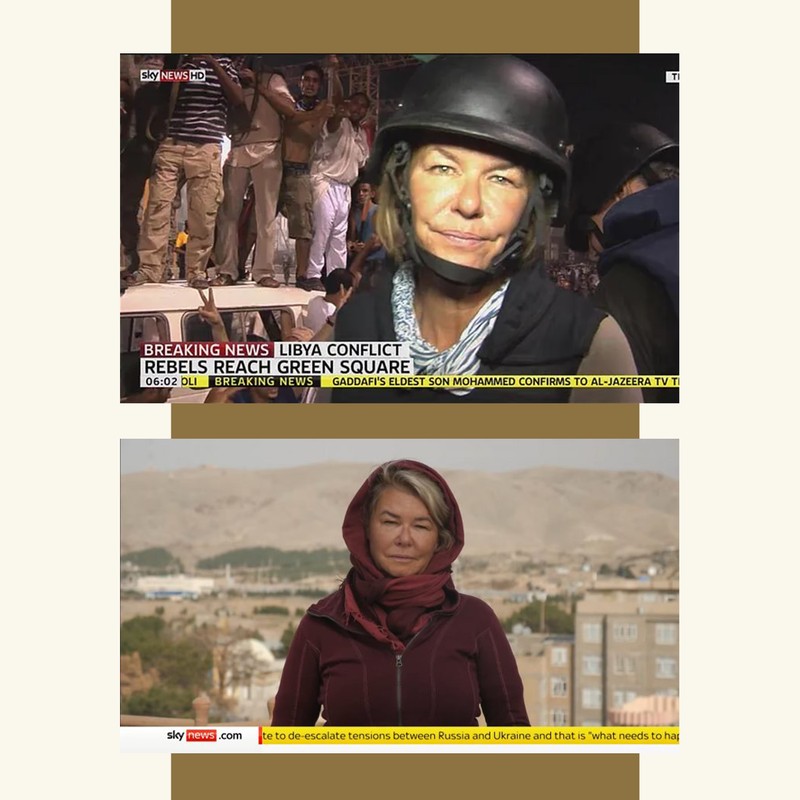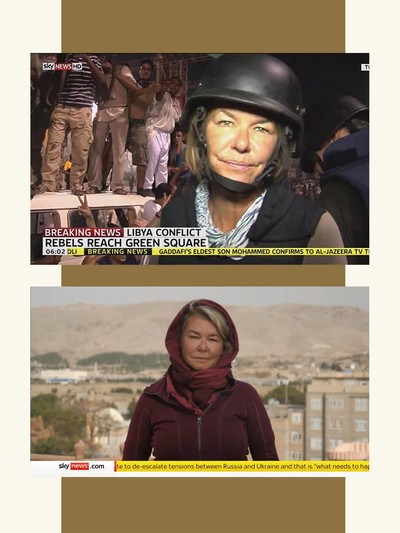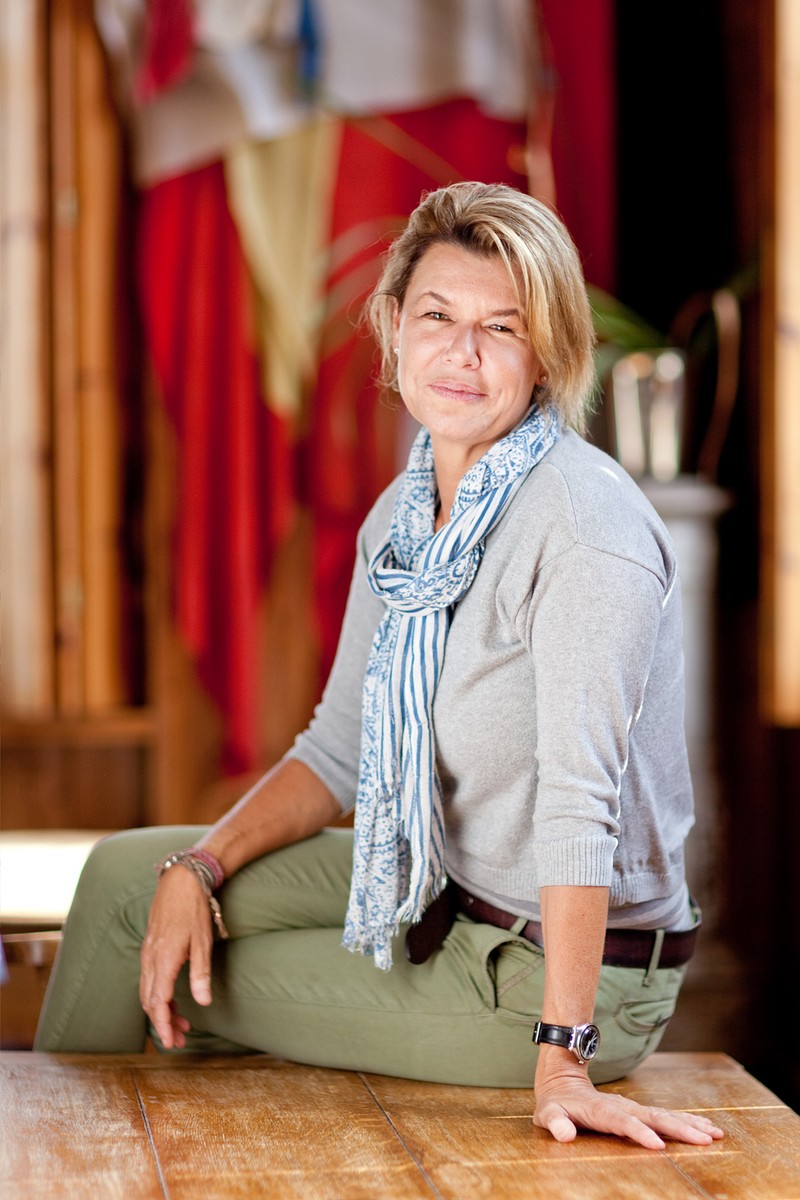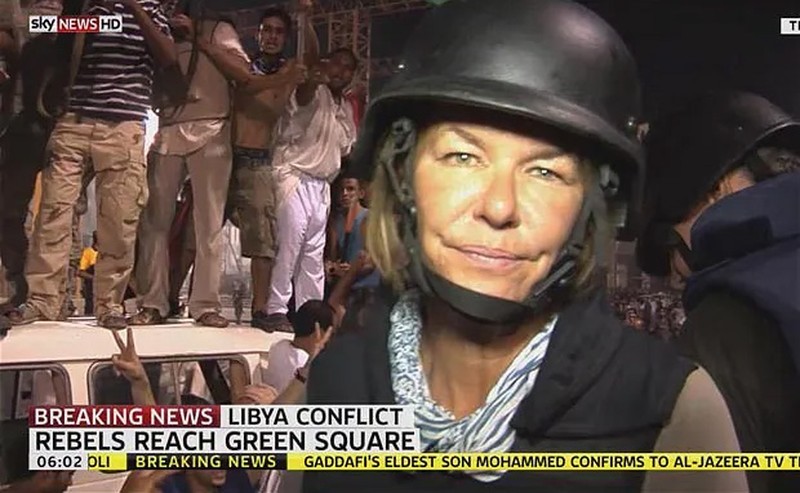

The Gold Edition Meets… Alex Crawford
I never set out to be a war reporter. It just followed me or at least I found myself enveloped in it. My first patch as a foreign correspondent was South Asia – so Afghanistan, Pakistan, India, Sri Lanka, Nepal – and within a year, all those countries were on fire. It felt like I was going from one upheaval or revolution to another, and they were all incredibly interesting, kinetic and active. If you spend your entire working life doing those sorts of stories, you build up a whole catalogue of atrocities, tragedies and despicable acts that form the foundation stones for how you judge everything else. It also gives you the kind of life experience that you can't learn through books or through reading.
I also grew up at a time when the IRA was attacking a lot of British targets. I didn't even grow up in Britain, but that was an everyday tale wherever you went – be it Manchester, Birmingham, Northern Ireland or London. My childhood was spent in countries that had regular coups – we lived in Zambia and went to school in Zimbabwe, and those two countries were at war with each other a lot. It’s only looking back now that I can see that it was a lead up to my career. A lot of my early work was covering the rise of the Taliban in Afghanistan, which was a massive learning curve. I saw plenty of people who came to work with me who just did one job and never came back. But clearly there was something that interested me and made we want to carry on doing it.
My entry into broadcast journalism wasn’t deliberate either – I just found it quite interesting. An opportunity came up to go into TV and radio after I joined the BBC and it just felt like the natural next step after regional newspapers and then regional news. That had been a really good learning ground, but newspaper life was quite hard. They’re unforgiving – it’s very hard to make mistakes on newspapers – even just in terms of getting the right information. It’s also quite solitary. What I liked about broadcasting was that it was much more of a team thing. I'm much more of a team player and I’m very used to being around people, both in my professional and my private life.
One of the reasons we chose Mexico for this series was that the statistics were just so horrifying. Particularly when it came to things like femicide, which is very difficult to prove. Going there and seeing what was going on with fresh eyes just made me think, why the hell wasn't this on my radar anyway? I felt it was a big black hole in my knowledge and in a lot of people's knowledge to be frank.
People tend to associate places like Mexico and Cancun with holidays, beaches and sunsets. What we found was there’s actually a really insidious dark side to it. Drug cartels take over almost every section of functional life and permeate it all, infiltrating the police, the local authorities and the national authorities – and they also really pressurise the journalists. The victims are so wide ranging – the crimes span child pornography, child trafficking, and women who are abused and misused in the sex trade. You think this is a problem that's so far away, but actually everyone who goes on holiday to Mexico is basically putting money into the pocket of the drug cartels. They’re also very much on the streets of London – even if they aren’t physically, their work is here and the products are here.

Making this film was an opportunity to highlight the issues which concern women. They're so often either the victims of or are caught up in a war – which is something I’ve been witness to for more than 20 years. Quite often, when you’re covering the news and are in all these hostile environments, you don't get the chance to cover the more moving stories. You’re covering homes being bombed in Ukraine or shells landing in Syria or schools being burnt down in Nigeria. You don't get the opportunity to look behind that – you're covering the essential story of the moment. So, I really wanted to focus on the people who suffer who tend to be women. Generally, it's not the women who start the wars or even run the wars, but they're very much at the centre of it all.
Women at War is a series my team at Sky makes. Luckily, my editor thought it was a great idea, so we went with it. It was the director who came up with the title and, to be honest, I wasn’t sure about it at first. But the first episode looked at Afghanistan, a place I’d been covering for 20 years, and it’s somewhere that’s trying to wipe out women and make them invisible. Women are basically brutalised in one way or another all over the world – whether it’s with female genital mutilation or by being sold as sex slaves, or struggling to win the right to drive or vote. There's just so much to look at – and that gave me the confidence to keep looking and do more episodes under this banner. I’m lucky to have a supportive editor who is interested in these topics – it’s still common to find people who just say, I can't really see that being goer. Mmm. It forces you to find different ways of trying to present the story in an engaging way.
To be able to make these kinds of films, you have to gain people's trust. Once you do, there can be quite a big leap. A lot of people who've gone through the most horrific traumatic experiences are desperate to talk. Sometimes you might be the first person that they've actually told anything to in any great detail – even their family members will be careful about asking key questions. Then, a stranger comes along, who's ready to listen and wants to tell their story. Quite often they're telling it for the first time and it’s a bit of a cathartic experience. Journalists have such a big role and responsibility because they have such big voices and such massive platforms. That determines a lot of what I do, I think.

If you make mistakes or do or say the wrong thing, consequences can be massive. But you can actually make things happen, even if it's just highlighting what everyone knows but hasn't responded to. When we did the Afghanistan documentary, parliamentarians were asking for it to be shown and they were crying because they seemed to be learning things that they either didn't appreciate or hadn't seen in reality. Honestly, it's quite staggering. It came out a year after the Taliban had been in charge, but the parliamentarians were acting as if it was the first time it was really brought home to them, seeing these girls cowering, being hit by Taliban guys and risking their lives going to school.
If I'm doing stories that I'm interested in but that also highlight a worthwhile issue, then that's a win-win. After Mexico, I’ve got so many ideas and plans but we’re slightly restricted by timings. Depending how that pans out, we’ve already started work on the potential genocide of the Yezidi women in Iraq and northern Syria. I’ve covered it for nearly ten years – ever since Isis raided Sinjab – so it feels like a story that’s very close to my heart.
I really hope the series ignites action on certain issues. For example, with Afghanistan I really wanted people and parliamentarians to realise and appreciate what was going on there, even though a lot of these issues were in the news day in, day out around the time of the pull-out of foreign troops and the Taliban’s takeover. The femicide in Mexico was astonishing to me – and it really showed me what women are going through in all parts of the world. In Mexico, they are literally killing women for being women and they’re on the run, everywhere. We need to be thinking twice about what’s going on in their lives versus women in other, safer parts of the world. My biggest goal is to make people care and help them understand. Especially if they’re the sort of people who can do something about it.
Women at War: Mexico is the second film in the Women at War docuseries fronted by award-winning Sky News special correspondent, Alex Crawford and produced by BAFTA award-winning director Toby Sculthorp. It airs on 3rd July 2023 at 9pm on Sky Documentaries and on Tuesday 4th July at 9pm on Sky News. Watch the trailer here.
DISCLAIMER: We endeavour to always credit the correct original source of every image we use. If you think a credit may be incorrect, please contact us at info@sheerluxe.com.

